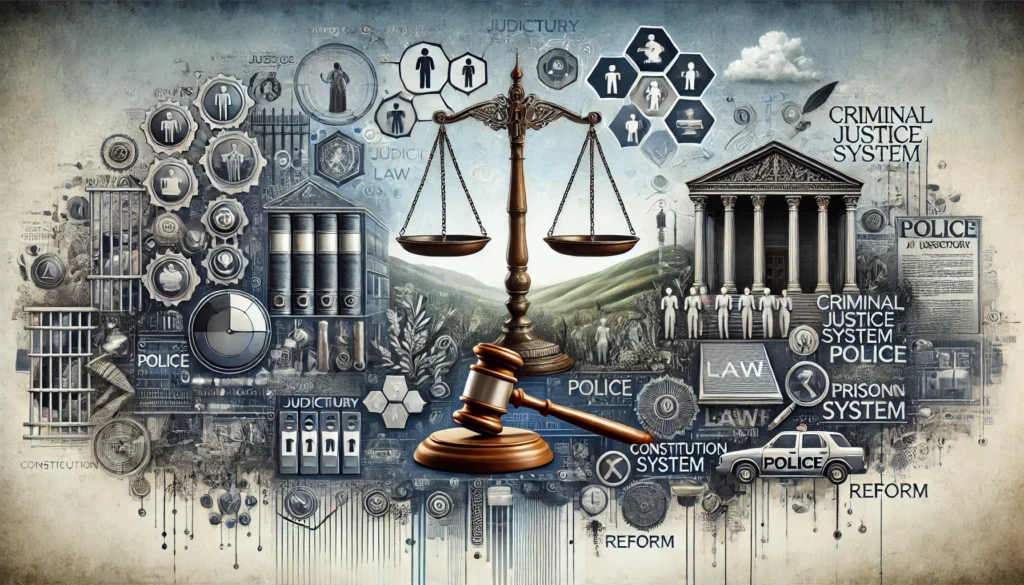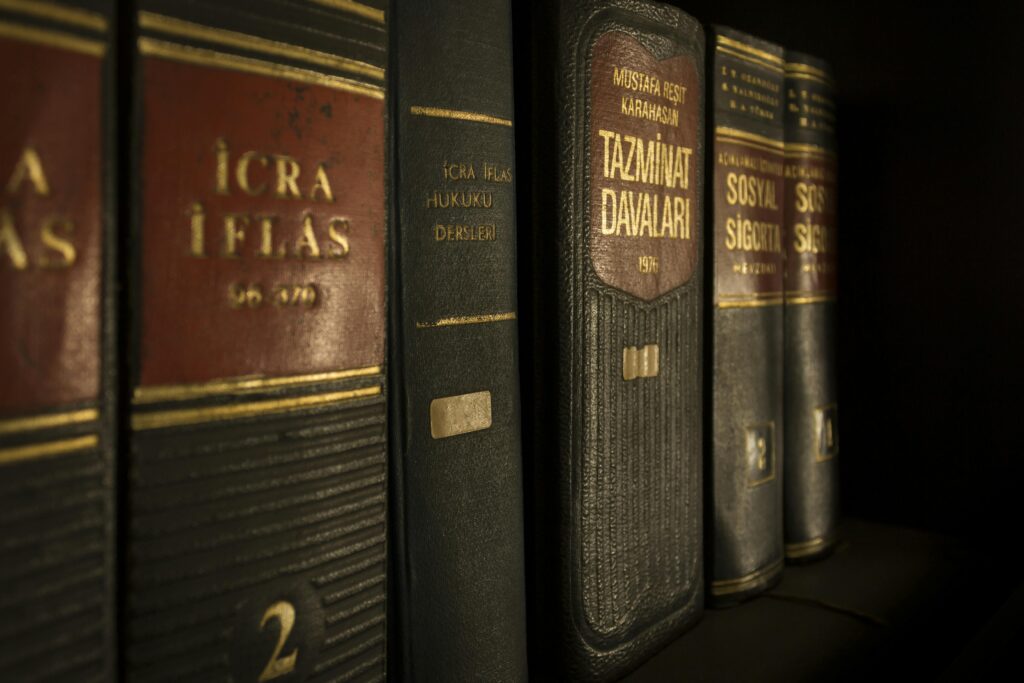Published on 21st June 2025
Authored By: Ayushi Yadav
Shri Ramswaroop Memorial University
Introduction
India has one of the world’s largest and most complex legal systems. Its criminal justice system is meant to protect the innocent and punish the guilty. However, sometimes the very laws meant to serve justice are misused. One such misuse happens when people file false criminal cases — either to harass someone, take revenge, or gain an unfair advantage.
Filing a false criminal case can destroy lives. The accused may suffer arrest, public shame, mental trauma, and financial losses, even if proven innocent later. The legal system provides a mechanism to address such situation , including remedies for defamation and filing the complaints for malicious prosecution.
What is false case?
A false case means a criminal complaint or FIR filed without any truth. The person making the complaint knows that no crime happened yet file with bad intention. This is also called malicious prosecution.
For example, if a woman files a fake dowry case against her husband just to torture him or demand money, that’s a false case. If someone Why Do People File False Cases?
People misuse the law for several reasons. Some common ones include:
- Revenge or Anger:
After a breakup, divorce, or personal dispute, one person may try to take revenge using the police and courts.
- Property Disputes:
To force someone to give up land or property, people may file false cases of assault, trespass, or cheating.
- Family Fights:
During marital disputes, false complaints of dowry harassment (under Section 498A IPC) or domestic violence are sometimes filed.
- Pressure Tactics:
Sometimes, one party files a false case to pressure the other into settling a matter or paying money.
- Business or Political Rivalry:
Competitors may try to defame or block someone’s work by filing fake complaints.
- To Avoid a Real Case:
Sometimes, a person who fears being accused of a real crime files a false case first, to appear innocent or confuse the police.files a fake theft FIR just to get revenge on a neighbor, that too is a false case.
Which Laws Are Misused Most?
There are certain criminal laws that are powerful and protect vulnerable groups. Sadly, some of these are also misused more often:
- Section 498A of IPC – Cruelty by Husband or Relatives
This law was created to protect women from dowry torture. But many genuine families have faced false cases with no evidence. The Supreme Court has even recognized this misuse in several judgments.
- SC/ST Prevention of Atrocities Act
This law is meant to protect scheduled caste and tribe members from social discrimination and violence. However, sometimes false cases are filed during land disputes or neighborhood fights.
- Rape & Sexual Harassment Laws
These laws are very strict — and rightly so. But false accusations of rape or molestation can ruin lives and reputations.
- POCSO Act (Protection of Children from Sexual Offences)
Sometimes, false cases are filed during child custody battles, where one parent accuses the other of child abuse.
- Section 354 IPC – Outraging Modesty of a Woman
This section is used when a woman complains of molestation. While it protects victims, false cases under this section can destroy a man’s image in society.
What Happens to the Innocent Victim of a False Case?
A person falsely accused in a criminal case goes through hell even before a court gives any judgment. Here are some problems faced:
Arrest or Jail: Even before the case begins, the accused may be taken into custody.
Social Shame: The community may assume the person is guilty. Even friends and relatives may stay away.
Loss of Job: Many people lose their jobs or face suspension from work.
Mental Trauma: Anxiety, depression, and sleepless nights are common.
Financial Burden: Hiring lawyers, paying bail, and other legal costs can drain savings.
Damage to Reputation: Even if proven innocent later, the stigma can stay for life.
What Does Indian Law Say About False Cases?
Key legal protections
1 section182 of IPC
Punishment for giving a false information to a public servant .the complain can face jail upto 6 month or fine.
2. Section 211 of IPC
Punishment for falsely charging someone with a crime. Jail term can go up to 2 years, or more if the false charge is serious.
3.section499 and 500 of ipc(defamation)
If a false case harms a person’s public image, the accused can file a defamation case and demand compensation.
4. Anticipatory Bail (Section 438 CrPC)
If someone fears arrest in a false case, they can apply for anticipatory bail before arrest.
5.quashing FIR(section438crpc)
If the FIR is clearly false and baseless, the accused can approach the High Court to cancel the FIR.
6. Compensation from the State
In some cases, courts have awarded compensation to those who were falsely accused and proven innocent.
What Can You Do If You’re Falsely Accused?
The practical steps to take if someone files a false case against you:
- Stay Calm & Gather Proof
Collect all evidence like messages, photos, call logs, documents, or CCTV footage that prove your innocence.
- Hire a Competent Lawyer
An experienced criminal lawyer can guide you through the case, from getting bail to fighting it in court.
- Apply for Anticipatory or Regular Bail
If the police are likely to arrest you, apply for bail immediately.
- Challenge the FIR
If there is no substance in the FIR, you can file a petition in the High Court to quash it.
- File Counter Complaint
You can file a case under Section 182 or 211 IPC against the person who filed a false case.
- Use Human Rights or Women’s Commissions
In family or dowry matters, you can approach the National or State Human Rights Commission, or even the Men’s Rights NGO if wrongly accused.
- File for Defamation and Compensation
If your image and career are damaged, file a civil or criminal defamation case.
Important Court Judgments on False Cases
Indian courts have acknowledged the problem of false cases. some famous judgments are mentioned below:
- Preeti Gupta v. State of Jharkhand, (2010) 7 SSC 667.
The Supreme Court noted misuse of Section 498A and said courts should be careful before arresting accused family members.
2. Rajesh Sharma v. State of U.P. (2017), 8 SSC 746.
The court gave guidelines to police, such as setting up Family Welfare Committees before any arrest in dowry-related cases.
3.Lalita Kumari v. Govt. of U.P. (2014), 2 SSC 1.
The Supreme Court said that police should conduct a preliminary inquiry in certain cases before registering an FIR.
- Arnesh Kumar v. State of Bihar (2014), 8 SSC 273.
The court ruled that automatic arrests in 498A cases are not allowed — police must follow proper procedure.
How Can We Prevent Misuse of Criminal Law?
To stop the trend of false cases, some reforms and steps are needed:
- Strict Punishment for False Complaints
People should fear filing a fake FIR. Courts should quickly punish those proven to have misused the law.
- Preliminary Inquiry Before FIR
In sensitive cases like dowry or sexual harassment, police should verify the facts before registering an FIR.
- Counseling and Mediation
Before filing cases related to marriage or property, there should be mandatory counseling or mediation to resolve the issue.
- Awareness Programs
People must know that filing a false case is a crime. Schools, colleges, and media can spread this message.
- Fast Track Courts
Special courts can be created to handle false cases quickly and reduce the burden on innocent people.
Needs for Legal Reforms
- Punishment for False Complaints
- Preliminary Inquiry Before FIR
- Counseling and Mediation
- Public Awareness
- Creation of Fast Track Courts
Recommendations for Policymakers
- Set strict time limits for investigating and disposing of false case allegations.
- Encourage police accountability by requiring explanations for arrests.
- Increase penalties for proven false complainants under Sections 182 and 211 IPC.
- Offer legal aid to falsely accused persons with
Promoting Responsible Use of Law
To ensure justice, people must use criminal laws responsibly. Misusing the law for personal gain not only harms innocent people but also weakens public trust in the legal system. Policymakers, courts, and society must work together to spread awareness, discourage false cases, and protect both real victims and those wrongly accused. Responsible use builds a fairer society.
Conclusion
The Indian criminal law is a powerful tool to ensure justice. But when it is misused, it becomes a weapon of harassment and fear. False cases waste the time of courts and police, harm the lives of innocent people, and damage public trust in justice.
Laws like Section 498A, rape laws, SC/ST Act, and others must continue to protect the real victims — but there must also be a system to stop and punish those who misuse them for personal gain.
So,The solution lies in balanced justice: To punish the guilty, protect the innocent. With proper awareness, legal reforms, and responsible use of the law, we can create a justice system where truth always wins.




